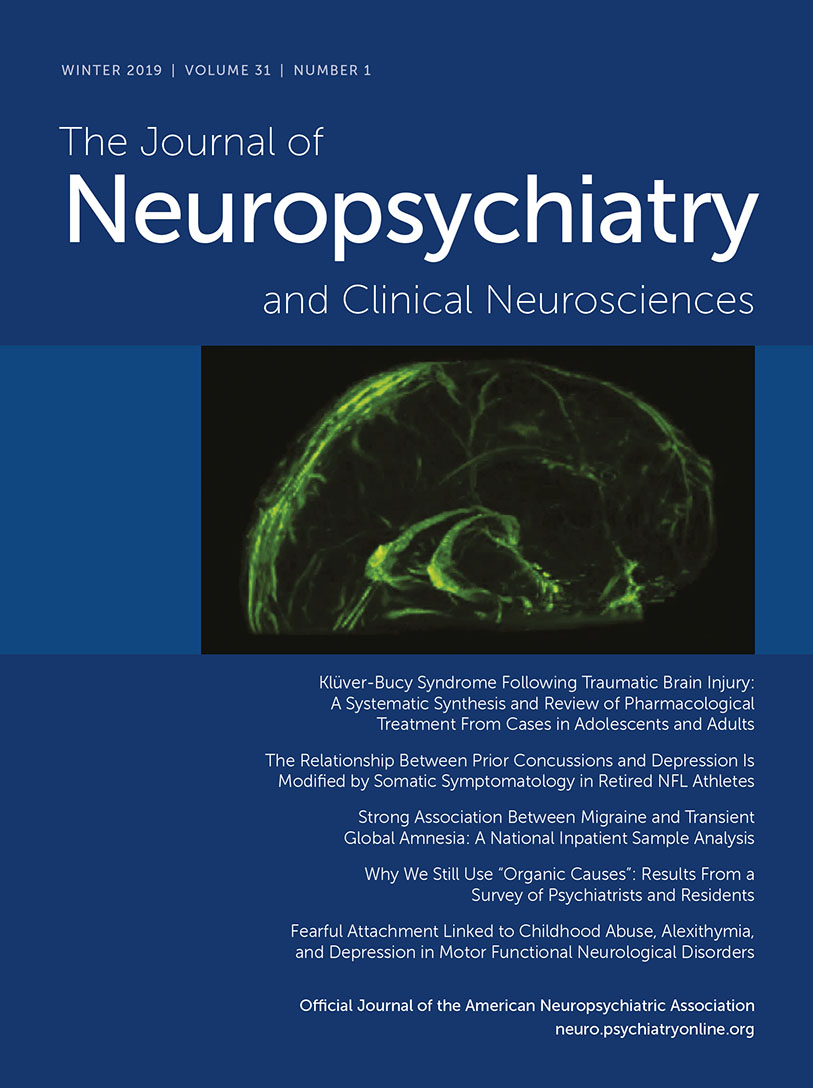Depressive Symptoms Are Associated With More Negative Functional Outcomes Than Anxiety Symptoms in Persons With Multiple Sclerosis
Abstract
Depression and anxiety are common among persons with multiple sclerosis (MS), and both negatively affect functional status. However, studies rarely account for overlap in depressive and anxiety symptoms on functional outcomes among people with MS. The authors aimed to examine the differential impact of depression and anxiety, measured by the Anxiety and Depression subscales of the Hospital Anxiety and Depression Scale (HADS-A and HADS-D), on functional outcomes among people with MS. Using a retrospective chart review of 128 people with MS, the authors used exploratory structural equation modeling to examine the relation of HADS-A and HADS-D to functional outcomes, namely employment status, fatigue (with the Fatigue Severity Scale), disability (with the Expanded Disability Status Scale [EDSS]), and cognition (with the Symbol Digit Modalities Test [SDMT]). After the authors controlled for the effects of covariates, HADS-A was negatively associated with EDSS (β=–0.22, p<0.05) and positively associated with vocation (β=0.23, p<0.05). In contrast, HADS-D was positively correlated with fatigue (β=0.37, p<0.05) and EDSS (β=0.26, p<0.05) and negatively correlated with vocation (β=–0.32, p<0.05) and SDMT (β=–0.28, p<0.05). HADS-A and HADS-D explained 5% of the variability in employment, 14.5% in fatigue, 1.6% in EDSS, and 4.3% in SDMT, beyond the effects of the covariates. Depressive symptoms have a significant negative impact on functional outcomes among people with MS, relative to anxiety symptoms. These findings support the importance of identifying and treating depressive symptoms among people with MS.



